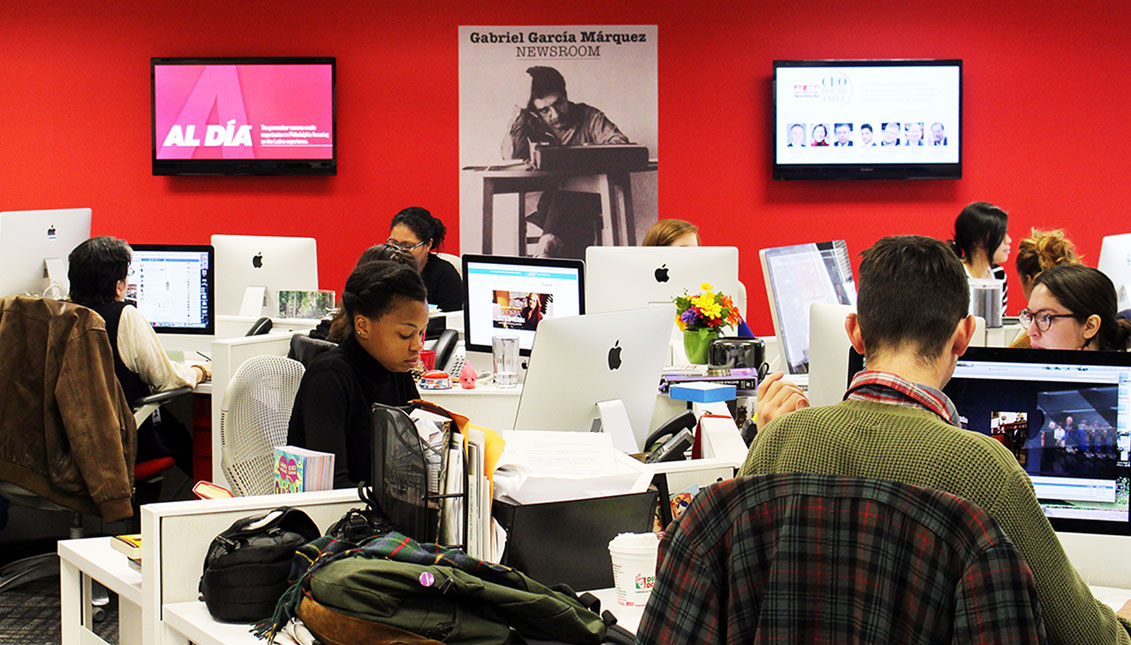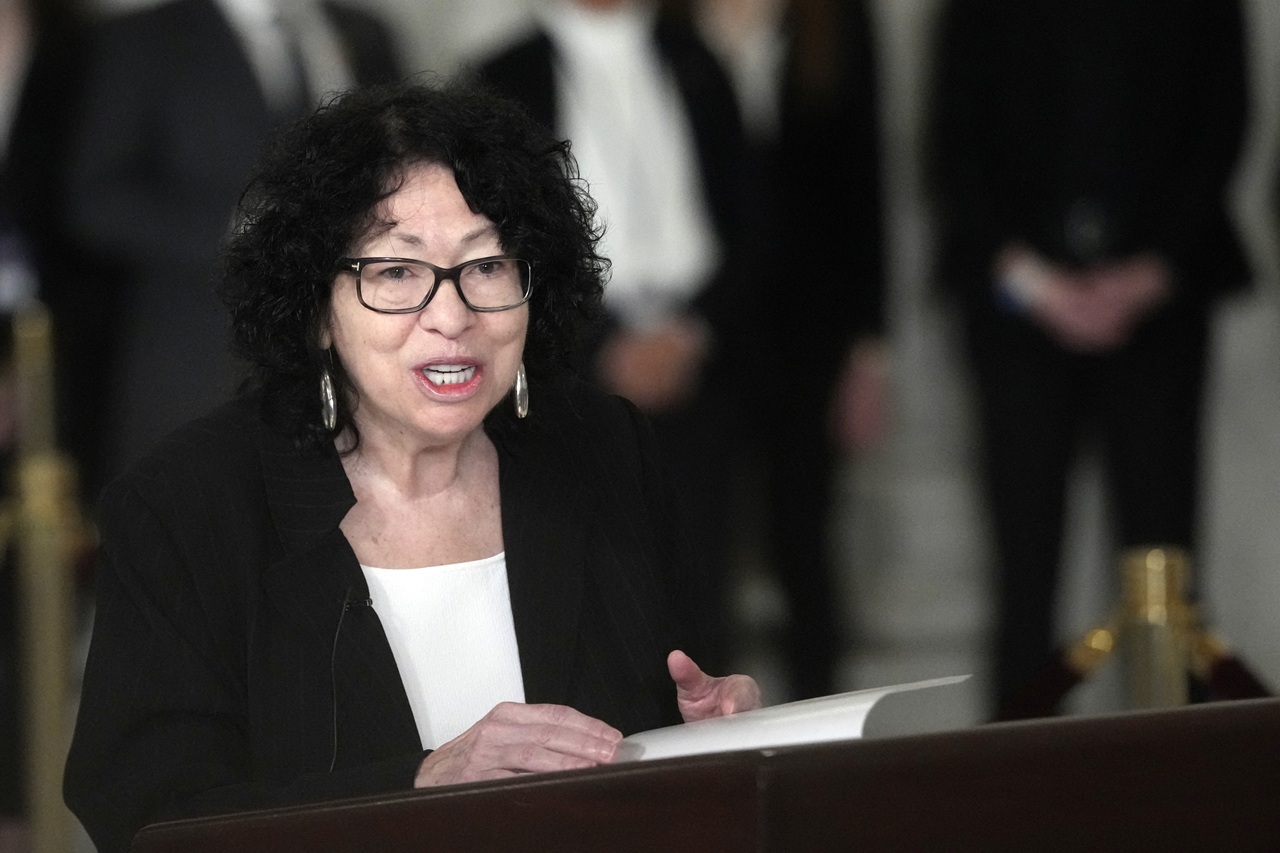
What is the
 Foundation, and what is its purpose?
Foundation, and what is its purpose?
With its first official staff member in place, the Foundation is looking to reach new heights.
Since it was founded more than a decade ago, the AL DÍA Foundation has had a clear cut mission: to create an ecosystem of multicultural and bilingual media leaders.
If Hernán Guaracao, Founder and Chairman of the AL DÍA Foundation, had to narrow down the approach towards achieving that mission in a single word, it would be: education.
As he was navigating during the earlier years of his AL DÍA Inc. journey, something became very apparent — that Latinos were lagging far behind education-wise in certain areas, areas that “were not part of the agenda for Latinos.”
The biggest challenge for AL DÍA Inc. was finding people who had the knowledge and experience of how to work within a newsroom.
About a decade before the Foundation was officially created, Guaracao started training individuals in the basement of a church in North Philadelphia on how to write and report in Spanish.
The trainees would learn how to write and report the news, obtain the crucial knowledge necessary and later begin working in the newsroom.
That initial endeavor later officially became the AL DÍA Foundation.
“The Foundation is a place where we come to learn,” said Guaracao. “The Foundation’s a place where our people finally had a place to learn a specialty that is not in the agenda of a Latino or a person of multicultural background to learn.”
The vision for the Foundation was laid out in front of him.
However, his approach since that moment has been guided by a piece of advice he received many years ago: When trying to look for purpose in life, you do better by choosing something that will take multiple generations to build.
While the Foundation has been in existence for several years, there had not been a single official staff member until this year.
In Aug. 2021, Taylor Cobb officially took on the role as Director of Business Development of the AL DÍA Foundation, where she is responsible for fundraising and setting the strategic direction of the Foundation.
Over her two-plus months in the role, Cobb has been busy building what she calls “a brand of trust.”
In addition, she’s developed a deeper understanding as to why Latinos in journalism are so important.
“We have been able to really show within our networks that we are here, we’re here to stay and that we will continue to remain a priority,” said Cobb.
When asked why now was the most opportune time to begin building the staff who will help lead the Foundation forward, Guaracao said it relates to the current reality both in our city, and the country at-large on two fronts.
The first pertains to the technological advances our society and the media industry has seen over centuries; from print media-only to the rise of radio and television and into the current digital age of the internet, that has seen the birth of podcasting and live streaming.
The second is the demographic shift occurring in our communities, as confirmed by the recent U.S. Census.
The Foundation has, and will continue to, make it a priority to utilize each advancement to assure the model does not collapse.
“Whoever doesn’t tune into the reality and the demographic transformation of our cities,” said Guaracao. “Risk their very existence in the years to come.”
“We have to include everybody who lives in this country as protagonists of the content that will be produced in the coming years,” he added.
The Foundation would not be able to function without the support of outside individuals who share its mission and vision.
Initially, putting together a board for the Foundation was no easy task.
Guaracao noted his early hesitancy to even ask anyone to join the Foundation, due to the possibility of no one having any interest or belief in the vision behind it.
“Finally, as I met people… I decided to invite them one-by-one,” he explained. “I met with them, told them about what we wanted to do and invited them to be a part of the Foundation.”
RELATED CONTENT
“None of them said, ‘no,’” he added.
What started out as six board members nearly doubled over the course of a couple years.
Guaracao described the recently expanded board, “very committed people who fully understand what we’re trying to do and fully will get behind the project and the staff that is going to be doing the work,” he said.
“We have individuals like Nelson Diaz… who’s a historical figure,” added Cobb. “We have individuals like Sam Ramirez; who is part of the first Latino-owned investment bankers in the United States; we have individuals like Mark Contreras, leader in Connecticut who has been invested in the democratic voice of journalism.”
Cobb went on to praise the entire board for being engaged, influential and committed to “investing their personal time and energy to get this moving.”
Looking towards the future, Cobb said her goal in the next handful of years is to see the Foundation become a unifying voice for the Latino agenda in the city of Philadelphia.
In continuation of the demographic shift in our society, we are becoming more diverse and multicultural, not less.
Therefore, the dual opportunity and responsibility to reshape the agenda for Latinos and multicultural individuals is there for the taking.
To that extent, Cobb noted that the Foundation’s agenda will aim to make various different areas a strategic priority.
The media has the critical role of setting that agenda in place and subsequently putting it into practice.
“Whether it be in workforce development, housing, education, health access, LGBTQIA, the agenda is long, but who serves as that unifying voice to those individual agendas?” asked Cobb.
“It’s media,” she answered.
Through the Foundation, aspiring journalists and future media leaders will be equipped with the high-quality education resources that will go towards that goal.
This effort will not take place overnight.
“Going back to the original statement,” said Guaracao. “This is going to take multiple generations to complete and take it to where it has the potential to go.”










LEAVE A COMMENT: